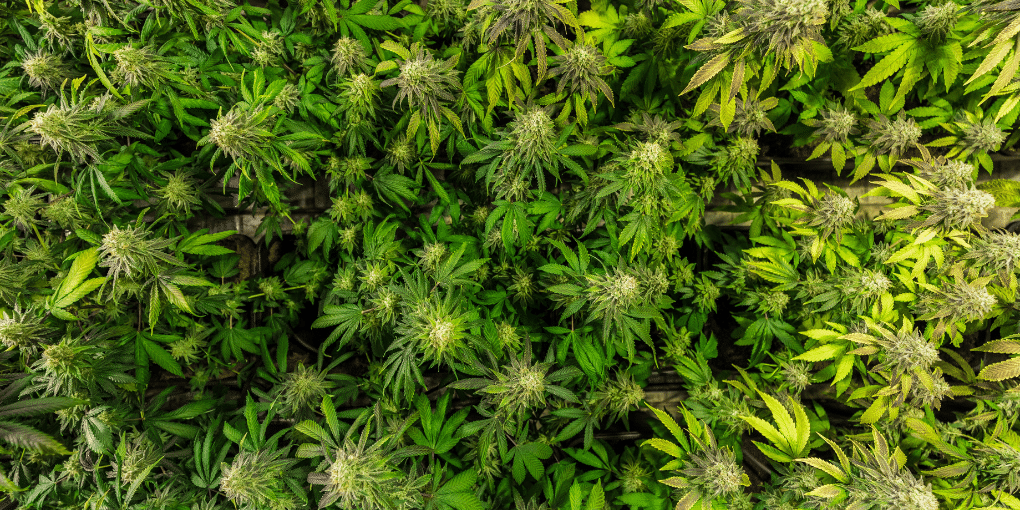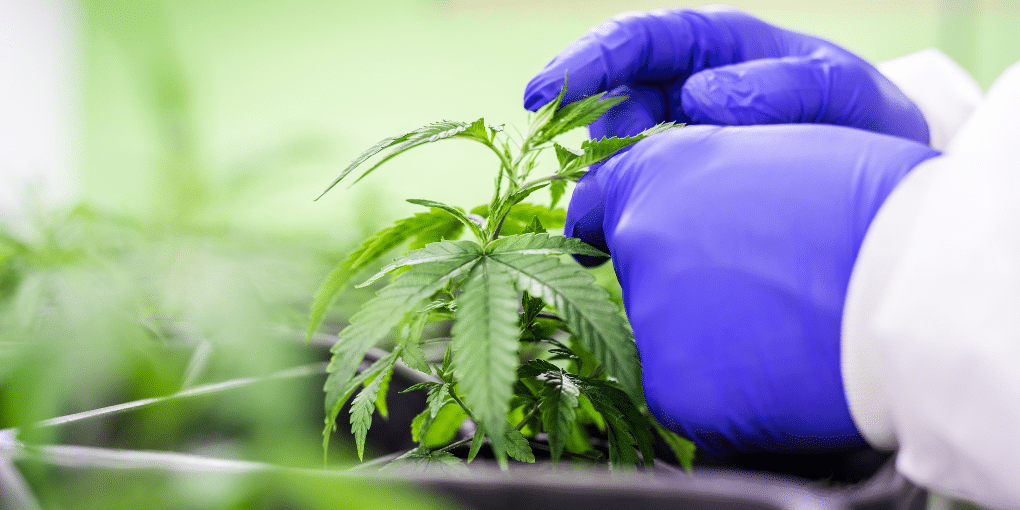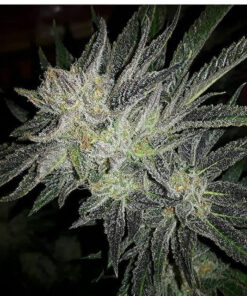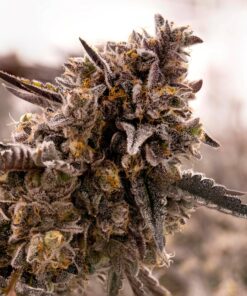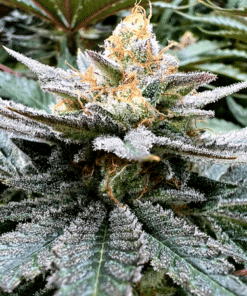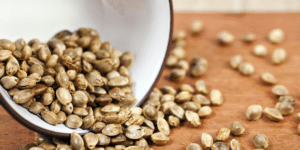Cannabis Strains, Cultivation, Tips
Understanding Cannabis Seed Genetics
One crucial aspect that influences the success of your cannabis crop is its genetics. In simple terms, the genes of your cannabis determine how well it will grow and what kind of effects it will have. In this article, we’re going to break down the basics of cannabis seed genetics.
Contents
What Are Cannabis Genetics?
At the core of every cannabis plant lies its genetic code. This code determines various characteristics, including the plant’s size, shape, and the compounds it produces. These compounds, such as cannabinoids and terpenes, are responsible for the unique effects and flavours associated with different cannabis strains. So, when we talk about cannabis genetics, we’re really talking about the unique combination of instructions that make each plant special in its own way.
Shop Hybrid Cannabis SeedsKey terms in Cannabis Genetics
Cannabinoids and terpenes are two key components that define the cannabis experience.
Cannabinoids: Cannabinoids are chemical compounds found in the cannabis plant. THC and CBD are the most well-known cannabinoids, each contributing to the plant’s effects in different ways. Understanding the genetic makeup of a cannabis strain can help predict its cannabinoid profile.
Terpenes: Terpenes are aromatic compounds found in many plants, including cannabis. They contribute to the plant’s flavour and aroma and can also have therapeutic effects. Cannabis strains with different genetics produce distinct terpene profiles, influencing the overall experience.
THC is the one that’s often associated with that euphoric feeling or the classic “high,” while CBD tends to offer a more calming and therapeutic experience. Imagine the cannabis plant as a chemical factory, and THC and CBD are the star products it produces. The levels of these cannabinoids vary from one strain to another, creating the diverse spectrum of effects that users experience. Now, here’s where the genetic blueprint of the cannabis strain comes into play.
The genetic makeup of a cannabis strain serves as the master plan, dictating how much THC, CBD, and other cannabinoids the plant will produce. It’s like the recipe that determines the proportions of each compound, influencing the overall impact the strain will have on its users. So, when you understand the genetic code of a cannabis plant, you gain valuable insights into the potential cannabinoid profile of the strain, providing a roadmap to anticipate and appreciate the unique effects it might deliver. This knowledge is particularly significant for those seeking specific therapeutic benefits or recreational experiences tailored to their preferences.
Two further essential terms to understand when talking about cannabis genetics are phenotypes and genotypes.
Phenotypes: Phenotypes are the observable traits of a cannabis plant, such as its height, leaf shape, and flower colour.
Genotypes: Genotypes, on the other hand, are the genetic codes that determine these traits. A single cannabis strain can exhibit various phenotypes while sharing a common genotype.
Landrace Cannabis: Landrace cannabis denotes strains that have naturally evolved in specific geographic regions, adapting to the unique conditions of their environment. These strains often exhibit distinctive characteristics reflective of their origin.
Modern Hybrids: Modern hybrids emerge from intentional crossbreeding, blending the genetic traits of different strains to create novel and often more potent varieties. Examples of modern hybrids include popular strains like Blue Dream, Girl Scout Cookies, and OG Kush.
Shop Sativa Cannabis SeedsHow Do Genetics Work in Cannabis?
Understanding the intricate dance of genetics in cannabis involves recognizing the transmission of genetic information from parent plants to their offspring. This transmission occurs through natural processes such as pollination or guided interventions by breeders to instil specific traits in subsequent generations. Selective breeding, a cornerstone in the cultivation realm, aims to enhance desirable characteristics, ensuring the perpetuation of preferred genetic traits.
Breeders engage in the field of genetics to influence and control the traits exhibited by plants. In the context of cannabis cultivation, the goal is often to develop strains with specific characteristics such as potency, flavour, aroma, and resistance to pests or diseases. Here’s an overview of how breeders approach genetics:
- Selection of Parent Plants:
Breeders start by selecting parent plants with desirable traits. These traits could include high cannabinoid content, unique terpene profiles, or certain growth characteristics. By carefully choosing the parents, breeders aim to combine and enhance the desired traits in the offspring. - Crossbreeding:
Once the ideal parent plants are identified, breeders crossbreed them to create offspring with a combination of genetic material from each parent. This process involves transferring pollen from the male plant to the female plant’s flowers, initiating the formation of seeds. - Genetic Variation:
The offspring, or seeds, produced through crossbreeding exhibit a range of genetic variations. This diversity is a result of the unique combination of genes inherited from both parent plants. It’s important because it allows breeders to explore a spectrum of traits within a single batch of seeds. - Phenotype Selection:
As the plants grow and mature, breeders observe the phenotypes, or physical characteristics, expressed by each plant. This phase involves selecting plants that exhibit the desired traits, whether it’s a particular leaf structure, flowering time, or other features. - Stabilization:
To create consistency in future generations, breeders work on stabilizing the genetic traits of a strain. This involves selecting and breeding plants that consistently display the desired characteristics over several generations. Stabilization ensures that the offspring will reliably express the traits intended by the breeder. - Backcrossing:
Breeders may also use backcrossing, a technique where a hybrid plant is crossed with one of its parent plants. This process helps reinforce specific traits from the original parent while retaining some of the desirable characteristics of the hybrid.
Selective Breeding: Crafting the Cannabis Future
At the heart of cannabis genetics lies the practice of selective breeding, an artful science that involves choosing parent plants with desirable traits to create offspring with a predetermined genetic makeup. Cultivators and breeders alike engage in this meticulous process to emphasize characteristics such as potency, yield, and resistance to pests or diseases. Selective breeding represents a dynamic interplay between human intention and the intrinsic genetic potential within the cannabis plant.
Shop Indica Cannabis SeedsImpact of Cannabis Seed Quality and Selection
The quality of cannabis seeds plays a pivotal role in determining the success of your cultivation endeavours. Opting for high-quality seeds from reputable breeders significantly increases the likelihood of cultivating plants with the desired traits. The meticulous selection of seeds based on their genetic makeup fosters a more predictable and successful cultivation process, underscoring the importance of discerning seed quality.

